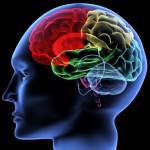May Update: Brain Training in Mental Health Toolkits for Prevention and Rehabilitation
 The use of a variety of brain training interventions is growing in the area of mental health. Emerging evidence suggests that in the near future targeted brain training may even be used to prevent substance abuse. For example, training working memory may reduce substance abusers’ discounting of long-term rewards and punishments — such discounting is one of the reasons why people susceptible to addictions do not benefit from traditional informational/ educational approaches to drug prevention.
The use of a variety of brain training interventions is growing in the area of mental health. Emerging evidence suggests that in the near future targeted brain training may even be used to prevent substance abuse. For example, training working memory may reduce substance abusers’ discounting of long-term rewards and punishments — such discounting is one of the reasons why people susceptible to addictions do not benefit from traditional informational/ educational approaches to drug prevention.
Let’s explore some expanding applications of brain training, and much more, in this latest edition of the monthly SharpBrains eNewsletter.
Brain Training and Mental Health
ADHD: Brain Training, Neurofeedback, Diet, and More: What can be done to fight ADHD and improve the lives of people suffering from it?
Neuroplasticity in the Brain of Children with Neurological Disorders: Brain training may be an option for children suffering from Tourette Syndrom to help reduce the symptoms.
Brain Training and Schizophrenia: Social cognitive training programs can boost schizophrenics’ skills social skills.
Rethinking the Classification of Mental Illness: How can we rethink the classification of psychopathology (via the new DSM‑5) to reflect our current understanding of the brain as a dynamic system?
Upcoming events: Cognitive Remediation in Psychiatry (June 10th, NYC), Entertainment Software and Cognitive Neurotherapeutics Society (September 19–20, San Francisco).
.
Lifestyle for Brain Health
More Friends, Bigger Brain: The number of friends you have could be predicted by the size of our amygdala!
 Music and Dementia: Playing music protects the brain later on. Music may also be used to teach new facts to people suffering from dementia.
Music and Dementia: Playing music protects the brain later on. Music may also be used to teach new facts to people suffering from dementia.
Exercise and Overweight Children: Aerobic exercise can boost overweight children executive functions.
The Brain Grows With Practice…: We know that when the brain masters a new skill, targeted brain areas/ circuits get enlarged. We now know that those areas and circuits eventually shrink back to normal, but performance gain can be maintained!
.
Food for Thought
What is Brain Fitness? What are Emerging Opportunities to Retool Brain Health? Here are the answers by seven 2011 SharpBrains Summit Speakers.
Navigate through the 30 most popular articles of last year in SharpBrains.com to learn more about the brain and how to maintain/ enhance brain functioning across the lifespan..
Brain Teaser
 Can you listen to these laughs and distinguish whether it is a human or a computer laughing? Also, given how good laughing is…how about trying this to find out how much stressed you are? You may be surprised.
Can you listen to these laughs and distinguish whether it is a human or a computer laughing? Also, given how good laughing is…how about trying this to find out how much stressed you are? You may be surprised.
.
We hope you enjoyed this newsletter. Please do feel free to share this with friends and colleagues via Facebook, Twitter and LinkedIn.


